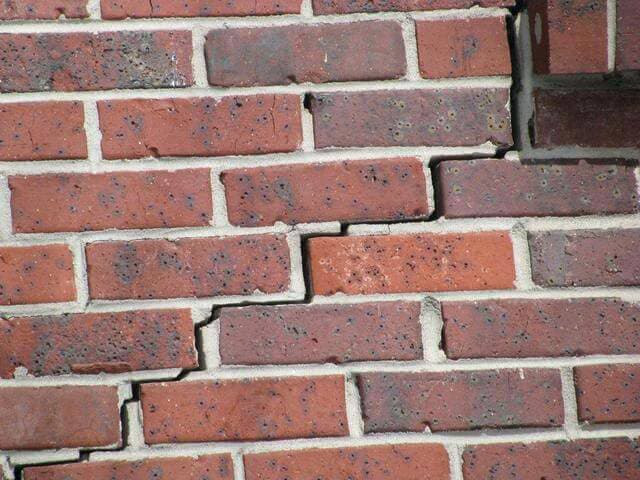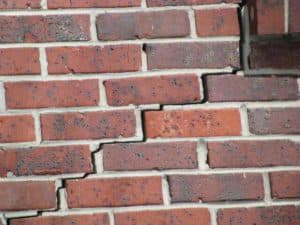
When you find cracks, or signs of damage within your foundation, you worry how serious the damage is, what repairs are needed, and how you're going to pay for those repairs. It seems logical that your homeowners insurance would cover part (or all!) of the repair costs, but I’m sorry to say that’s not usually the case.
Acculevel is a family-owned and operated company that specializes in foundation repair. Since our start in 1996, we have repaired more than 20,000 homes in Indiana and the surrounding states. We consider educating homeowners as important as repairing homes; it is our goal to answer all of our customers’ questions clearly and fully. However, as we are not insurance experts, we consulted with our own insurance company Blevins Insurance for their expert advice.
We are going to give a brief overview of the most common types of foundation damage, discuss if and when homeowners insurance would cover the needed repairs, and provide additional resources for you to use as part of your decision-making process.
The foundation issues you are most likely to find in your home are caused by water in the soil around your home. If there is more water in the earth than the soil can absorb, hydrostatic pressure forms. This can cause cracks in the foundation, erosion under the footings which leads to settling, and even bowing foundation walls.
Since these are naturally-occuring problems, they are not usually covered by homeowners insurance. This is immensely frustrating of course, because these are the predominant problems you find. We are speaking in broad terms, so there is always a possibility that your issues may be covered. And while we wholeheartedly recommend contacting your insurance agent with questions about your policy and coverage, there can be unintended consequences.
A cautionary tale: On a few occasions, a customer has checked with his/her insurance agent about covering a specific problem. The agent came to the home, did an evaluation, then told the customer it wasn’t covered. But now that the insurance carrier knew about the existing problem, if the customer didn’t repair the issue within a given time, they would drop their insurance coverage. Our advice? If possible, call and update your insurance before you have any issues to resolve.
 This photo was taken by an Acculevel project manager during a free estimate appointment. This crack indicates the foundation is settling, and will need piers.
This photo was taken by an Acculevel project manager during a free estimate appointment. This crack indicates the foundation is settling, and will need piers.
What we can say definitively is that man-made foundation issues are much more likely to be covered by insurance. For example, if someone drives into your house or garage, these repairs should be covered by insurance, in part by your homeowners policy and partially by the driver’s car insurance. This may seem like a far-fetched example, but I assure you- it does actually happen.
If this sort of accident occurs on your property, we recommend that you have a structural engineer evaluate the foundation- before calling in a contractor or repair company. The contractor will want the engineer’s recommendations on the needed repairs. (Contractors are not qualified to assess the stability of your foundation; only a structural engineer can.)
If you live in an area where mining has been a significant industry, you should consider a policy addition. Millions of homes in the United States are built over abandoned mines, and mine subsidence is an option. Most of the counties affected by this in our service area are in southern Indiana and Kentucky; homes built in this area may be at risk for damage caused by land shifts in these mines.
There are companies like Residential Warranty Services that offer warranty plans to supplement their insurance coverage. RWS does not have an age limit; no matter how old or new your home is, they have options available. Some of their plans do include foundation cracks, appliances, and other items that may not be covered -or not fully covered- by your regular insurance policy.
If you have questions about home warranties, and what types of repairs they will cover, we have a companion article that explores those options, also.
If so, you are either completely or partially responsible for the costs of the repairs, depending on the cause. This is unfortunate, and we understand that you may want to put off making repairs. But we would urge you not to do this, even if it means acquiring financing. Delaying repairs will only cost you more money, as the damage gets worse.
The first step is to look for an experienced foundation company and make an appointment. Before you sign a contract for any service, always verify the company is reputable, insured, and accredited by the Better Business Bureau.
If you haven’t hired a contractor in a while, or if this is your first time, we offer a free downloadable guide to questions you should ask a contractor. These questions were compiled with the help of our entire staff, and they include everything: the faqs our call center hears, warranty coverage from our service team, financing concerns from accounting, even a few questions only a foundation expert familiar with our industry would know to ask.
If you live in our service area, contact Acculevel. We will schedule an appointment with one of our knowledgeable and experienced project managers, who will provide you with a free written estimate.
[DISPLAY_ULTIMATE_SOCIAL_ICONS]